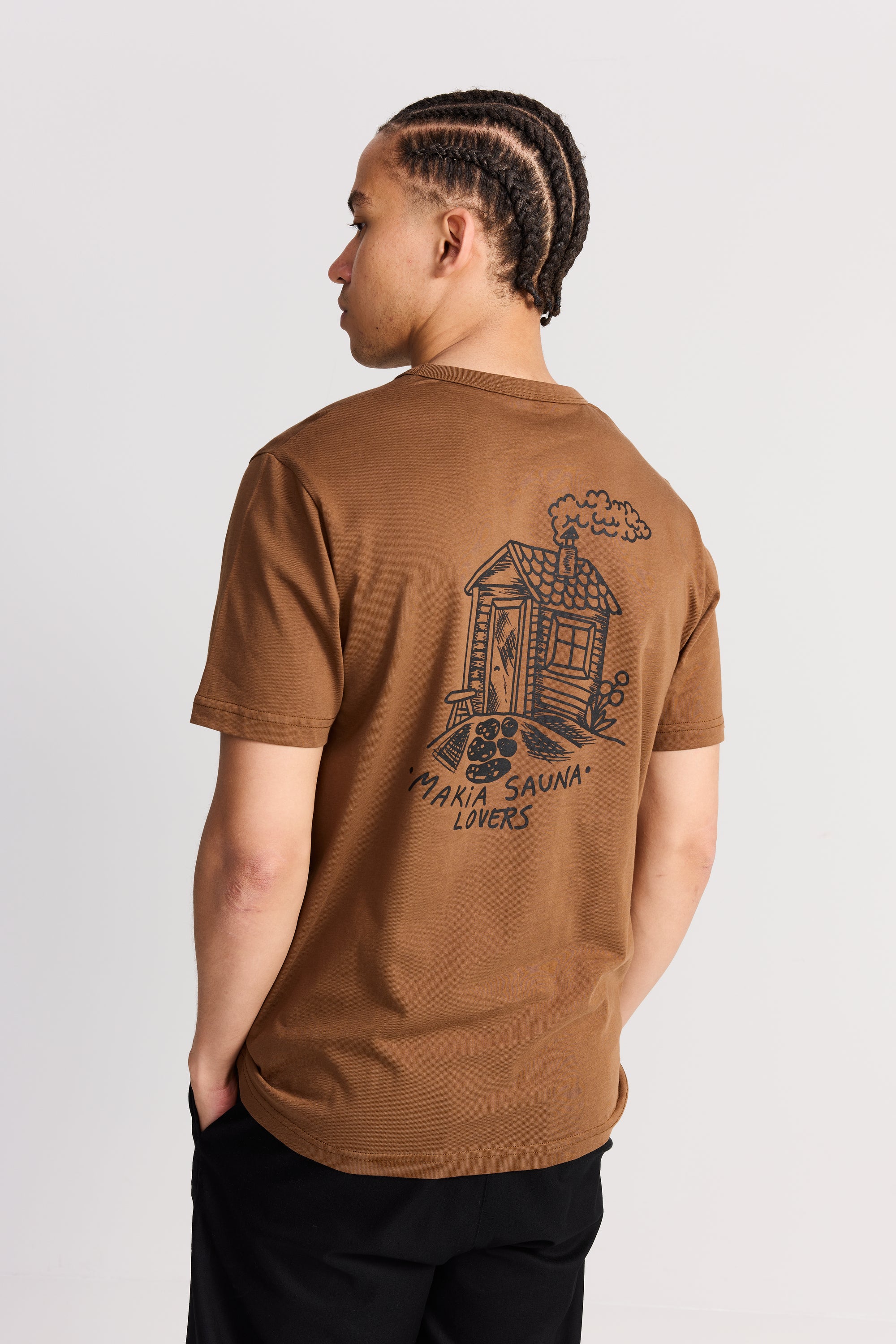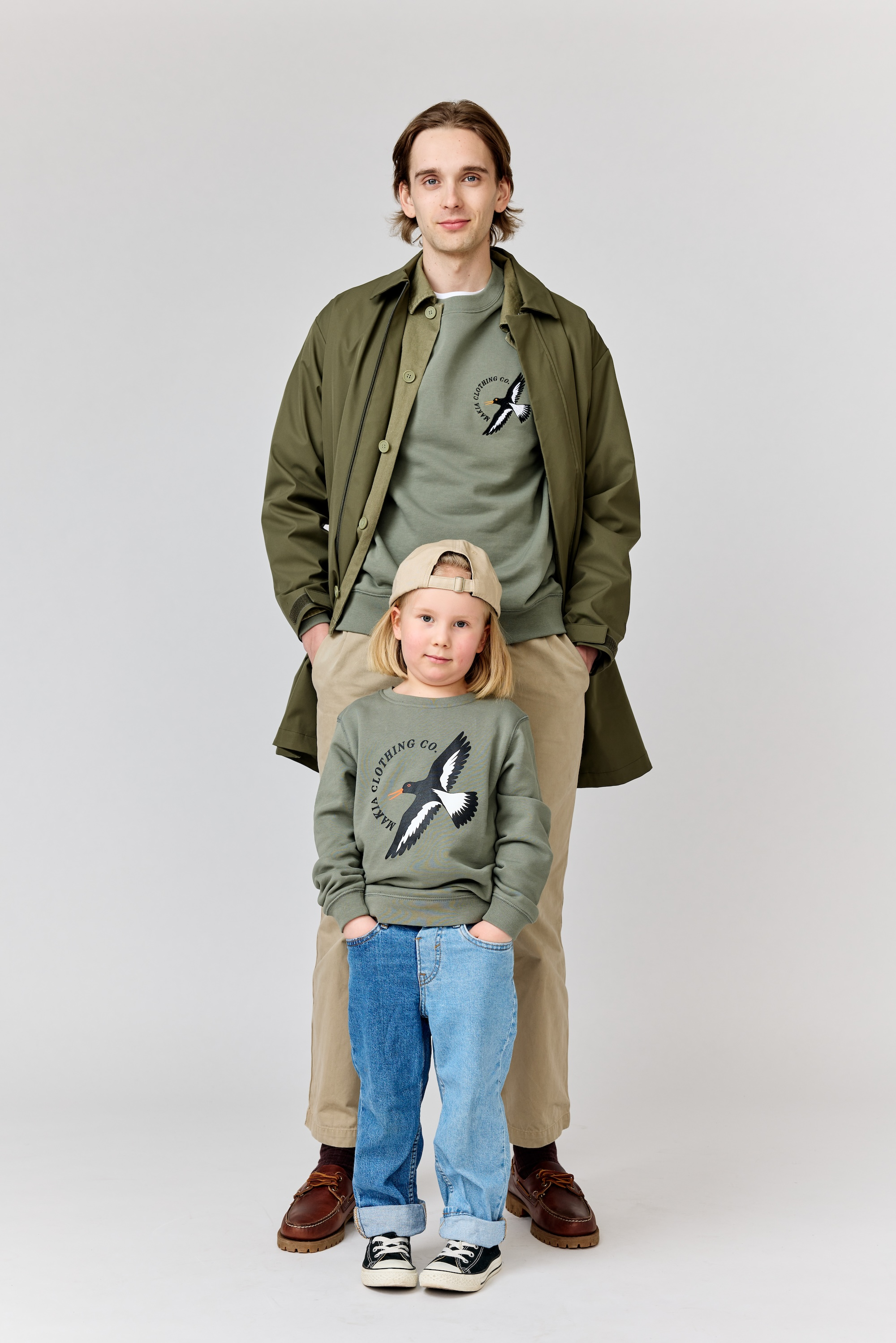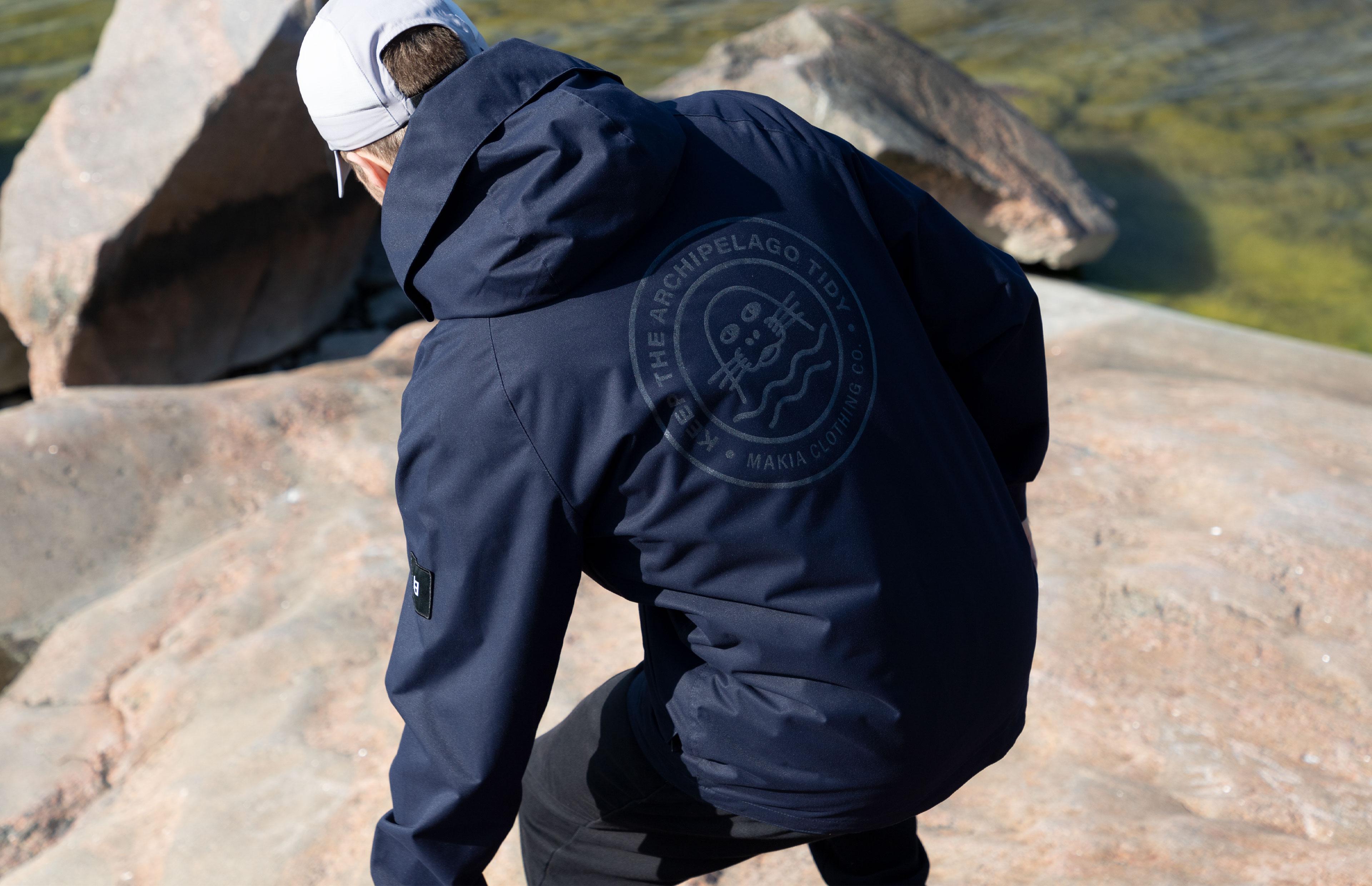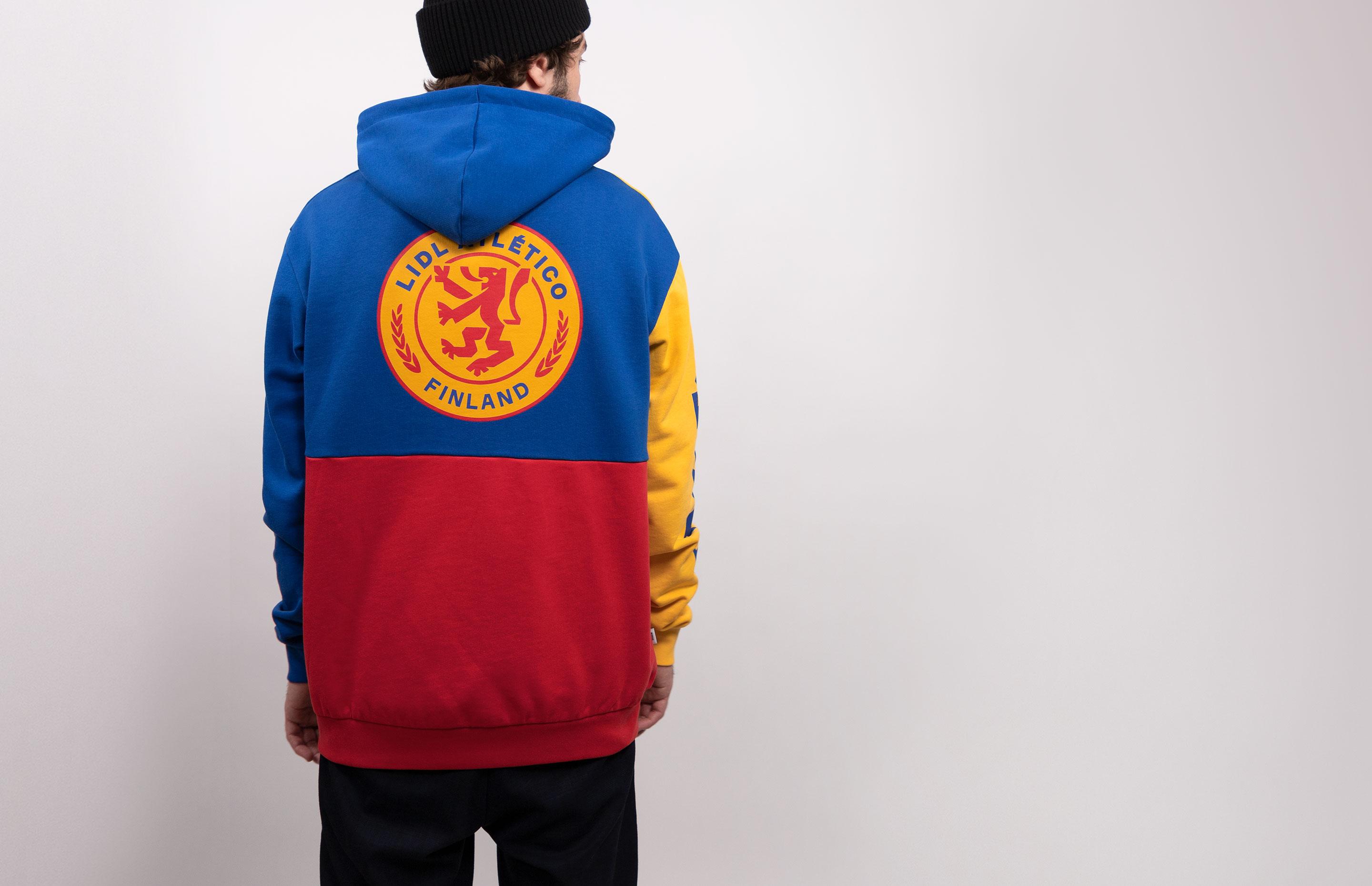
Made in Turkey
Turkey is one of the main suppliers to the international textile and fashion industry. Last year, 68% of Makia’s production took place in Turkey, because the country offers a highly developed industry, its own organic cotton production, short transport distances and better working conditions than in Asian countries. Makia has selected its subcontractors carefully and worked with Turkish suppliers for the past ten years already.
Sustainable business
Turkey is one of the main suppliers to international textile and fashion brands. It is an important trading partner with the EU, with annual textile and clothing industry exports amounting to USD 27.5 billion. Turkey is also a very important trading partner for Finnish imports of textiles and clothing. In 2020, Turkey was the third largest supplier of textiles and clothing to both Finland and the European Union. Turkey is no longer a low-cost country compared to many Asian countries.
Turkey has a modern and diversified textile and clothing industry that is capable of fast delivery times and that covers all parts of the supply chain. Its supply chain is short compared to Asia, and production is flexible. Turkey is home to more than 50,000 companies in the textile and clothing sector. The majority of these are small and capable of delivering also smaller orders. At the same time, the number of integrated companies has been growing in recent years. An integrated company means that the same production facility provides two or more services under the same roof, such as fibre production, processing, spinning and dyeing. This improves the transparency of the entire chain and makes it easier to determine, for example, the origin of raw materials.
Turkish textile industry is a major employer
Of Turkey’s 85 million inhabitants, 1.67 million work in the textile industry. The Turkish workforce can be described as young and dynamic. Productivity is high and the workforce well educated: there are currently 7.9 million students in higher education in Turkey, and 600,000 graduate from university each year.
Turkey’s minimum net wage in 2021 was TRY 2825, approximately EUR 275 per month. According to the Global Living Wage Coalition, the estimated living wage in rural Turkey is TRY 3551, approximately EUR 350 per month.
Makia’s main supplier in Turkey is Yokoteks, which is responsible for the production of Lidl x Makia blankets, for example. The median net salary of Yokoteks employees is TRY 4660, approximately EUR 453 per month. All Yokoteks employees have a fixed monthly salary.
Shorter delivery distances, high levels of organic production
Turkey’s advantages as a textile-producing country is that it covers the entire production chain, from the production of raw materials to manufacturing the final product. Turkey also has high levels of organic cotton production, which protects and conserves the soil compared to traditional cultivation methods. Increasing attention is being paid to the environmental friendliness of production processes, and state-of-the-art machinery is helping reduce the textile industry’s consumption of water and chemicals, as well as increase their recovery and treatment.
As much as 75% of Makia’s production in Turkey in 2020 was made from certified organic cotton. Organic production has many benefits for the soil, air and water, which do not accumulate harmful chemicals as a result. Working conditions are also healthier for farmers and others working with raw materials when harmful chemicals are not used.
Turkey has a well-developed infrastructure covering transport, telecommunications and energy production. Turkey has 12,000 kilometres of railways, a third of which are electrified. Turkey also has 91 paved airports and 9 major ports. The country’s textile industry is highly developed, and the geographical location is ideal. The transport of finished products by road to Finland takes a week and is therefore cheaper and faster with shorter transport distances than from East Asian countries, for example.
Turkey responsible for 68% of Makia’s production in 2020
Last year, 68% of Makia’s production took place in Turkey, mainly in two production facilities in the Izmir region with which Makia has had a long-term relationship since 2011. These relatively small factories are privately owned by two families and run by women.
Garment supplier Yototex is responsible for approximately 56% of Makia’s total production. This includes men’s and women’s clothing, including t-shirts, sweatshirts and blouses. Knitwear manufacturer Ege Örgü is responsible for approximately 2% of Makia’s total volume, mainly knitwear and knitwear accessories. In addition, Makia uses the Istanbul-based textile agency SSTR to handle the production of blouses and trousers in the Istanbul area, accounting for 6.8% of Makia’s total production volume in 2020.
Why did Makia select Turkey as the main production country for its products?
Turkey is the world’s 7th largest cotton producer (2019-2020). Turkish cotton is generally considered to be of very high quality, and Turkey is also one of the world’s leading producers of organic cotton. In addition, Turkey is one of the world’s leading yarn producers. Having the production chain as much as possible in the same country also facilitates the traceability of raw materials and the entire production chain.
Turkey has been in a customs union with the EU since 1996, which has significantly contributed to the development of the sector. Growing EU trade has encouraged Turkish companies to invest, and the production technology and equipment in the Turkish textile and clothing industry are now among the best in the world. Over the past 10 years, Turkey has imported USD 1-2 billion worth of machinery for the textile industry each year, so the equipment base has kept up with the development of the industry. Modern machinery consumes less water and energy and has a lower environmental impact.
As a result of these investments, Turkey is also one of the leading countries in the world in terms of the capacity of its textile and clothing industry. Turkey has the know-how, production technology and workforce to enable further development and growth as a developer and producer of technical textiles. At the same time, the range of products produced by Turkey has diversified, and the country is developing more high value-added products, such as antibacterial products, nanotechnology, military products, non-wovens, healthcare textiles and protective clothing.
Textile production chains are often complex. The country of import refers to the country from which the product is sent to Finland, but the various components of textiles and clothing move from one country to another. The finished product usually contains components and work stages from several different countries. For example, the production chain of a cotton shirt can go as follows: The cotton that is the raw material for the garment comes from Turkey. The cotton fabric is woven in Portugal. The design, pattern sewing and cutting of the product are done in Finland, after which the pieces are exported to Estonia for sewing. From there, the product is sent directly to the retailer in Sweden or is sold abroad through a logistics centre located in Finland. In trade between EU countries, however, the country of origin is indicated as the country from which the goods were sent if the country of origin cannot be determined otherwise. Makia has concentrated its production in Turkey because having the production chain as much as possible in the same country facilitates the traceability of raw materials and the entire production chain.
Makia production in Turkey:
Istanbul:
SSTR Tekstil, textile agency
http://www.ss-tr.com/
– handles the production of blouses and trousers in the Istanbul area
– 2020: 6.8% of Makia’s production
Izmir:
YOTOTEKS, factory and coordinator
http://www.yototeks.com/en/
– men’s, women’s and children’s jerseys, and entire women’s collection (excl. coats)
– 2020: 56.3%
EGE ÖRGÜ, factory
https://www.egeorgu.com/
– knitwear and knitted accessories
– 2020: 4.7%
Production in Turkey by product group (% of total production / % of product group)
– t-shirts 28% / 84%
– sweatshirts 23% / 98%
– knitted accessories 3% / 28%
– shirts 5% / 100%
– trousers & shorts 4% / 100%
– knits 2% / 60%
– dresses 2% / 100%
– skirts 1% / 100%
Sources:
https://www.texfilesbd.com/news/top-10-garments-exporting-countries-of-the-world-in-2020-top-textiles-exporting-countries/2/
https://shenglufashion.com/2020/08/03/
European Commission Directorate-General for Trade
https://worldpopulationreview.com/countries/countries-by-gdp
https://app.powerbi.com/view?r=eyJrIjoiMTA1NzA5MmYtMTNkYi00NzhjLWJkYjktMmJlYjY1Njc0MWI3IiwidCI6IjZlOTVmZjE2LWU5NjUtNDljMC05ZGI2LTZiNjg4ZDJjZDhmZSIsImMiOjh9
https://www.worldometers.info/world-population/turkey-population/
https://www.statista.com/statistics/263055/cotton-production-worldwide-by-top-countries/
https://www.impactreport.app/makia/clothes/index.html?view=TheMap
https://www.trade.gov/knowledge-product/turkey-education
https://www.globallivingwage.org/living-income-reference-value-rural-turkey/




